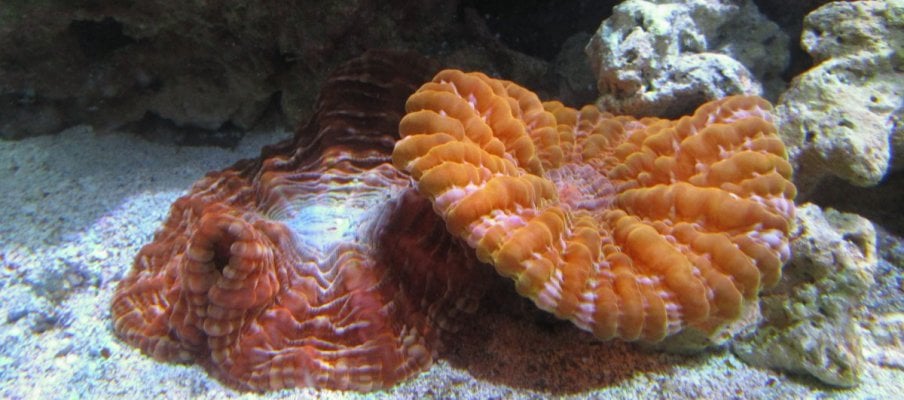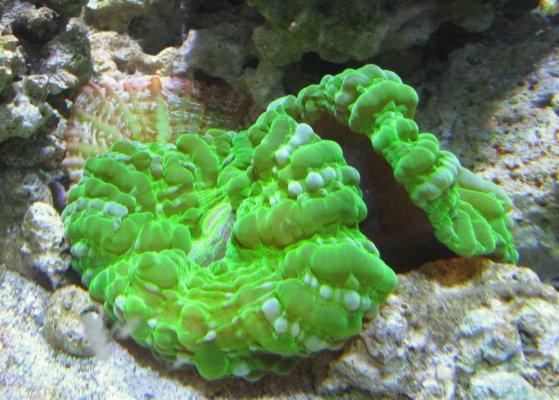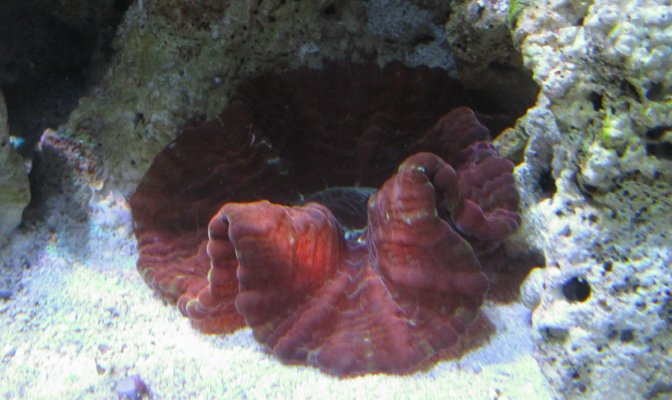They are beautiful corals.All 3.
I have cynarina & acanthophyllia - still looking for indophyllia to add.
OP, do you have the ability to block out ambient light from the room to control perceived "moon" cycles?
Follow along with the video below to see how to install our site as a web app on your home screen.
Note: This feature may not be available in some browsers.
They are beautiful corals.All 3.
I have cynarina & acanthophyllia - still looking for indophyllia to add.
Not at the moment, but I will be getting a curtain in the near future.They are beautiful corals.
OP, do you have the ability to block out ambient light from the room to control perceived "moon" cycles?
Is the skeleton that size, or the whole coral? If the skeleton is that big, then $75 is a steal since it'll open up to 2-3.5". If the coral, when open, is that big, then it's not a great deal but still worth it IMO. They are too beautiful to pass up.My lfs has a few half dollar sized green cynarina for $75 each. Is that a good deal?
Thanks for helping us figure this out! Debate is literally what science is for, and lately I've failed to see much in modern science xD The pronunciation is also very interesting, I thought it was the second to last syllable that is supposed to be stressed? I guess we all learned something lolOk...
I was wrong.
Back in the 80s when reefing started to really take off, it was "common knowledge" that Acropora was named for the lack of a crop in the polyp structure. This idea was promulgated by word of mouth, internet message boards, and even magazine articles.
However, we were all wrong.
The FACT that the proper pronunciation is "a-CROP-or-a" certainly didn't help, and made it easy for us all to accept the inaccurate data as truth.
After spending the past few days researching this, I still haven't quite pinned down the intent of the name's meaning.
Acro means "high," "first," and "extreme."
Not very specific, eh?
Pora sounds like it means pore, but the more I dig into it, the more it seems to more specifically in this case mean mouth. I'm guessing that the name-giver just went with pore to describe mouth.
The original description is in German, which complicates things.
So, Acropora means what, exactly?
High mouth?
First mouth?
Extreme mouth?
My money is on extreme.
So fine, you win. The name doesn't refer to the lack of a crop.
I'm still right about the pronunciation, though.
Thanks for helping us figure this out! Debate is literally what science is for, and lately I've failed to see much in modern science xD The pronunciation is also very interesting, I thought it was the second to last syllable that is supposed to be stressed? I guess we all learned something lol
Yes, you're right; the second to last syllable gets the emphasis. Not the first to last, or penultimate as Chris said. Two syllables back from the end when there are three or more syllables, or the first syllable when there are only two. Really long words often get two emphasized syllables.Thanks for helping us figure this out! Debate is literally what science is for, and lately I've failed to see much in modern science xD The pronunciation is also very interesting, I thought it was the second to last syllable that is supposed to be stressed? I guess we all learned something lol
Yes, you're right; the second to last syllable gets the emphasis. Not the first to last, or penultimate as Chris said. Two syllables back from the end when there are three or more syllables, or the first syllable when there are only two. Really long words often get two emphasized syllables.
Usually.
When things are named for people or places, this rule is sometimes ignored to keep the honorific sounding recognizable.
The classic old Innes book included pronunciations with descriptions of the fish, but he had it almost totally wrong. The widespread distribution of that book over three generations led to a whole lot of hobbyists grossly mispronouncing things to a probably incurable degree.
Leporinus fasciatus, for example.
Is it lep-o-REE-nus fas-see-AY-tus?
How about lep-or-EYE-nus?
Heh. I've seen a lot of arguments over this one.
Both are wrong.
It's lep-OR-in-us fas-SEE-uh-tus.
The name means roughly the rabbit-lipped fish with vertical bands.
Admittedly, it's harder and not as much fun to pronounce these names correctly, but remember the whole point of them is standardize the pronounciation across the globe to avoid confusion between speakers of varying languages.
To we Americans, these pronunciations sound a little strange, but to many other people around the world, they sound perfectly natural, since their own languages use inflections different from ours.
I know a few german hobbyists and scientists, by the way. Acropora was first described by a German. The ones I know all pronounce it aCROPora, which I used to just chalk up to accent before I started studying this stuff.
Not long ago, I heard a YouTube guru refer to White Clouds as "Tanthis ALBOnoobs."
The problem is widespread and deeply rooted indeed!
Now that you know the rule, you can probably figure out the correct way to say it.
So sorry for making such a mess of your coral spawning thread. I never meant for things to get so out of hand.
They are doing good! The uglies started a couple days ago so I placed the urchin & a temporary turbo in there to take care of it. As you'd expect, things started falling over pretty fast, so some corals have slightly different placements. I'll see if I can do an update today, but it might have to wait until after Easter.OP, how are the Kin-uh-ree-na?
Yes! The syllable breaks are the key to it all, and the rules for that are often ridiculous and seemingly arbitrary. In general, breaks don't fall on hard vowels, with the next consonant being included to soften that hardness.Now I'm even more confused.
Looking in more detail, if the last syllable Is a heavy, then the penultimate gets emphasis. If it's light, as in acropora (we agree on the "ah' at the end, at least) then it's the anti penultimate as you correctly point out.
Is really a question of where the syllables themselves fall? If so, I believe latin words have as many syllables as vowels.
So,
ac-ro-por-a
Following your correct anti penultimate rule, the RO gets the emphasis, right?
I guess this comes down to the question of where the syllable breaks are.
This is the only correct answer...I will say this, acropora is truly pronounced "stick".
Example: He was looking to buy some sticks at the local fish store.
The tank is doing well! Just getting to the end of the uglies, so that's exciting. I want to get some fish for it soon!Hey OP, how's the tank going?



